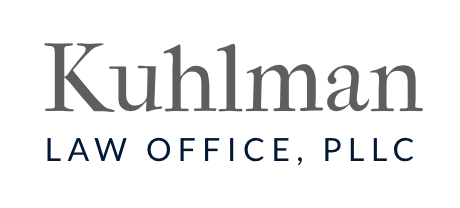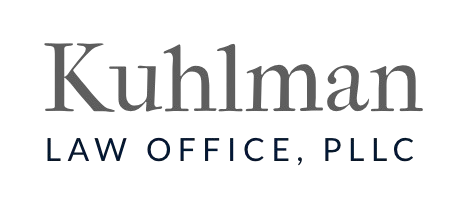Regain Control of Your Debt
Chapter 13 Bankruptcy
Protect Your Assets and Create a Manageable Repayment Plan.
If you’re struggling to keep up with debt payments, facing foreclosure, or worried about losing your car or other assets, Chapter 13 bankruptcy may be the solution you need. Unlike Chapter 7, which eliminates unsecured debt, Chapter 13 allows you to restructure your debt into a manageable repayment plan—typically spanning three to five years—so you can regain control of your finances without losing everything. At Kuhlman Law Office PLLC, we help individuals and families in Seattle, Bothell, Everett, Mill Creek, Lynnwood, Woodinville, Redmond, and surrounding areas.
Chapter 13 bankruptcy, often called the “wage earner’s plan,” allows individuals with a regular income to create a court-approved plan to repay some or all of their debt over a set period of time. With Chapter 13, you can:
- Prevent foreclosure and keep your home by spreading past-due mortgage payments over time.
- Consolidate debts into a single, affordable monthly payment.
- Reduce or eliminate certain unsecured debts, including credit card balances and medical bills.
- Protect your car and other secured assets from repossession.
- Stop creditor harassment, lawsuits, and wage garnishments.
What Debts Can Be Managed or Discharged?
Chapter 13 bankruptcy can help with a variety of debts, but not all debts can be discharged. Debts that typically cannot be discharged include Alimony & child support, Certain tax debts, Student loans and Criminal fines & restitution. Debts that can be included in a repayment plan:
Mortgage Arrears
Prevent foreclosure and catch up on past-due mortgage payments.
Credit Card Debt
Unsecured debts may be reduced or eliminated after plan completion.
Medical Bills & Personal Loans
These debts can often be significantly reduced.
Car loans
Reduce payments and avoid repossession.
Who Qualifies for Chapter 13?
You may qualify for Chapter 13 bankruptcy if:
You have a steady source of income that allows you to make structured payments.
Your total secured and unsecured debt is within court-approved limits.
You are behind on mortgage or car payments but want to keep your property.
You don’t qualify for Chapter 7 but still need debt relief.
If you’re unsure whether you qualify, we’ll help you evaluate your financial situation and explore all options.
Frequently Asked Questions
If you’re considering Chapter 13 bankruptcy, you likely have questions about how it works, whether you qualify, and what debts it can help with. Below are some of the most frequently asked questions about Chapter 13 bankruptcy.
How does Chapter 13 help with foreclosure or repossession?
Filing for Chapter 13 immediately stops foreclosure or repossession through an automatic stay, giving you time to catch up on missed payments while maintaining ownership of your property.
Do I have to repay all of my debts in Chapter 13?
Not necessarily. Some unsecured debts, like credit cards and medical bills, may be partially repaid or eliminated at the end of the repayment period, depending on your income and the amount of disposable income available.
How long does a Chapter 13 repayment plan last?
A Chapter 13 repayment plan typically lasts between three and five years, depending on your income, expenses, and total debt obligations.

